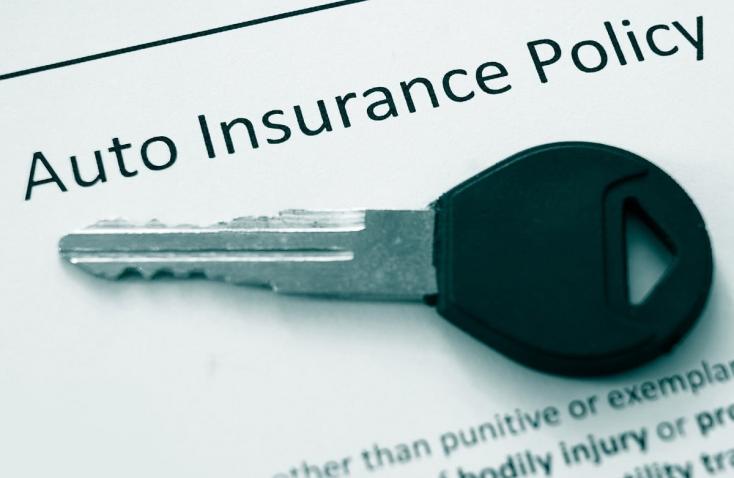to get insurance quotes in your area
How can I check my auto insurance claims history?

The number of claims, as well as the types of claims a person has made on their car insurance policy, are essential pieces of information that they should know. With a large number of variables used to determine a person’s car insurance premiums by auto insurance providers, these are just a few of them. Car insurance companies use people’s age, driving record, location, and many more variables to determine rates. Many people are familiar with these. People do not often know that their claims history record even exists, nor why it is used, however. Even people who are aware of their history’s existence do not always know what is included in them.
What Is A Claims History Record?
Whenever a person files an automobile insurance claim, it gets added to the claims history record. When your claim gets added to your driving record, the insurance companies can use it for future underwriting purposes, as well as for use in pricing your next automobile insurance claim. The type of auto insurance claim it is does not matter, nor does the amount. If you made a car insurance claim, it would be added to your claims record history.
Why Are Claims History Records So Important?
A common question that is asked is why a person’s record of claims is impactful to them now that the claim has been resolved. The actions a person takes can have a long-lasting effect on their lives, and for automobile insurance companies, this can be even more true. Auto insurance providers use mathematical formulas and statistics to determine the amount of risk giving a person an insurance policy brings to the company. So long as the company brings more money in overall on premiums than it spends out on claims, the company will remain in a good financial position. In return for getting premiums, the company helps people out of financially tough situations if they occur and are covered.
Fortunately, you can get information about your claims history and be more aware of what to expect with automobile insurance. Many car insurance carriers ask about when your last claim was when you apply for a policy. You may need to contact your current insurance company to get the information if you do not know it. People can get what is called a letter of experience from their insurer to get the most recent information about their claims. This letter will have information about the dates of your claims, as well as how long you been with the insurance carrier and the settlement amounts of the claims. There are also other ways you can get this information.
What Happens When You Don’t Know Your Claims History?
If you do not know your claims history, you may need to get more information from your insurance provider or by using other resources. Over time, people tend to forget about the accidents they’ve had, particularly more minor ones. For people who do not remember when their last claim occurred, reaching out to your insurance company is often the first step of the process.
When you get a letter of experience, which is one way to get a detailed account of your claims history, it must be printed on official car insurance company paper and signed by an authorized representative from the company in order to be valid. Also, all of the information an insurance carrier needs to have to remove a claims surcharge should be in the letter. The letter will include the name of the insured person on the policy, the policy number, the current status of the plan, the inception date of the plan, the termination date of the policy, the type of claims that have been filed, the payouts for each coverage, the date of the claims that were made, the details of the claims that were made, the injuries that a claim was made for, and whether the policy is active or closed.
When Can You Get Your Claims History From Your Insurer?
Take note that people who have not been in an accident or have not been in a situation where they have needed to file a claim for damages will not need to be concerned about their claims history. It may make sense in some cases to pay for certain automobile damages yourself rather than file a claim. This can be particularly true when the cost of damages is close to or under the deductible or when your rates will go up more than the cost of the damages you would be repairing. Keep in mind that your claims record is used as a variable to help auto insurance services to determine your premiums. Having a clean claims history can be beneficial. There are times where filing a claim is the best choice, so look at the pros and cons of both options whenever you are considering filing a claim.
How Can I Check My Auto Insurance Claims History?
Getting a letter of experience is generally the most efficient way to get information about the claims you have made. There are some cases where this is not the best option for people to use, however. In some cases, people do not want to contact their automobile insurance provider. Another option they have is ordering a C.L.U.E. report. C.L.U.E. is the Claims Loss Underwriting Exchange report. These reports are often used for applying for jobs where accidents have to be disclosed. They are also used by car insurance providers to check on accidents and claims before offering a policy. The C.L.U.E report can also be useful for people who have changed car insurance companies often, saving them from having to get a letter of experience from each car insurance company they have had a policy from. Knowing your claims history can be essential in some cases and can also help you know a little bit more about what to expect when applying for a car insurance plan. Having more information is extremely useful, and General Insurance not only has fantastic articles that answer these questions but also provides the tools for getting the best prices for car insurance available. Get free quotes today, then compare and save.







Add new comment